
7 years | Full-stack content marketing & management
2 years | UI & UX design
I know from firsthand experience as a 2x bootstrapped founder how crucial content and design are in informing the rest of the user’s experience with product, sales, and marketing.
Content-as-a-Service
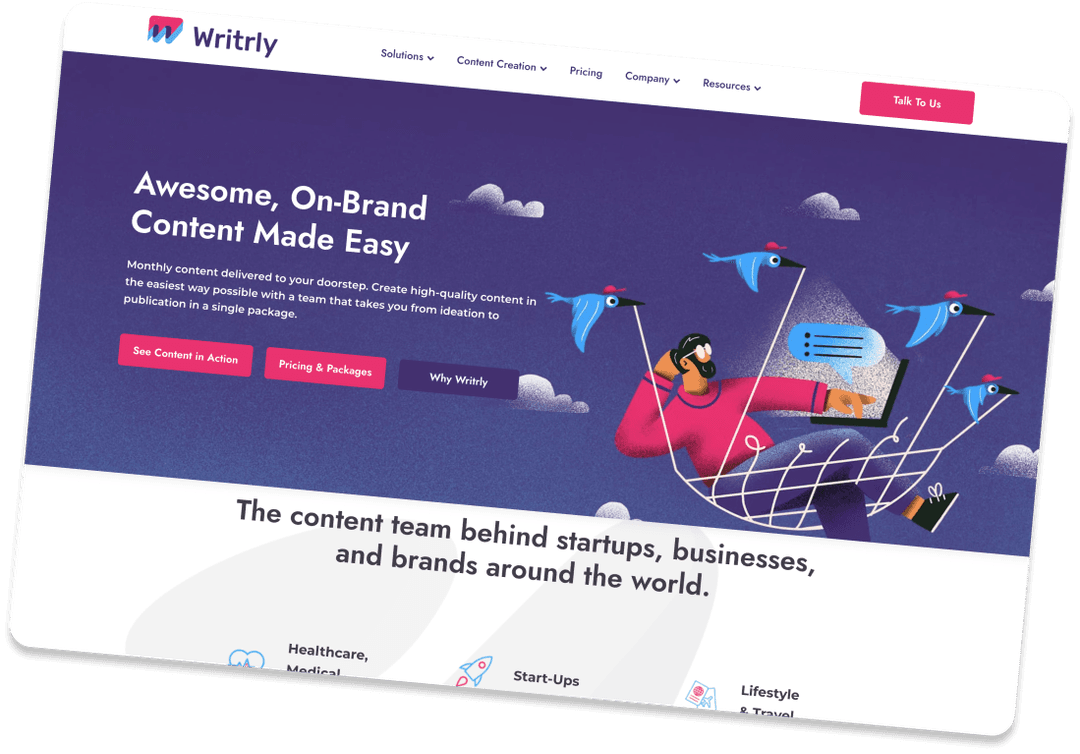
Mental health SaaS
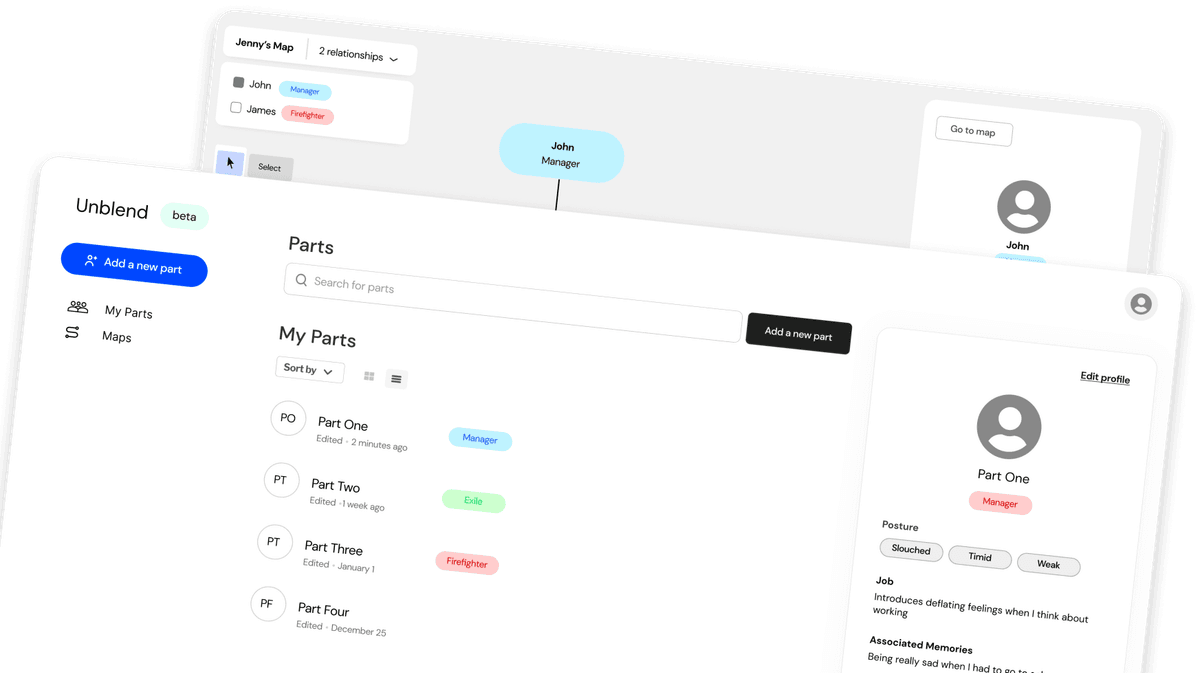
CURRENT TIMEZONE: GMT +8
SINGAPORE, HONGKONG, MANILA TIMEZONES
I’ve worked asynchronously with project owners, entrepreneurs, developers, SEOs, and designers in the AEST, CEST, and EST timezones. I have hired, trained, and scaled to a team of 10+ remotely and without time tracking tools. Here’s a sample of how I communicate.
FEATURED CASE STUDIES
PORTFOLIO & PROJECTS
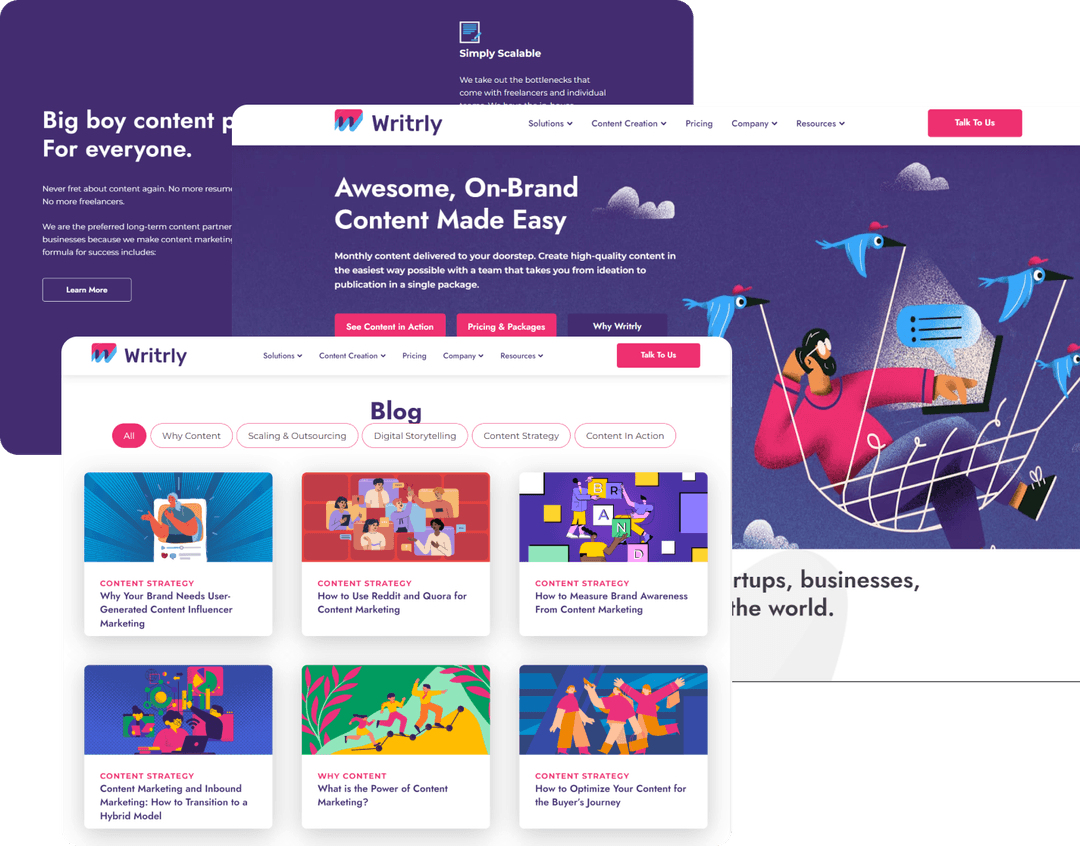
B2B | CONTENT MARKETING
Adopted a SaaS pricing structure to content marketing - leading to $20k MRR. Refined the brand messaging based on 1:1 customer interviews and developed multiple content and design-based touchpoints.
BRAND IDENTITY
POSITIONING & MESSAGING
SALES-ENABLEMENT
THOUGHT LEADERSHIP
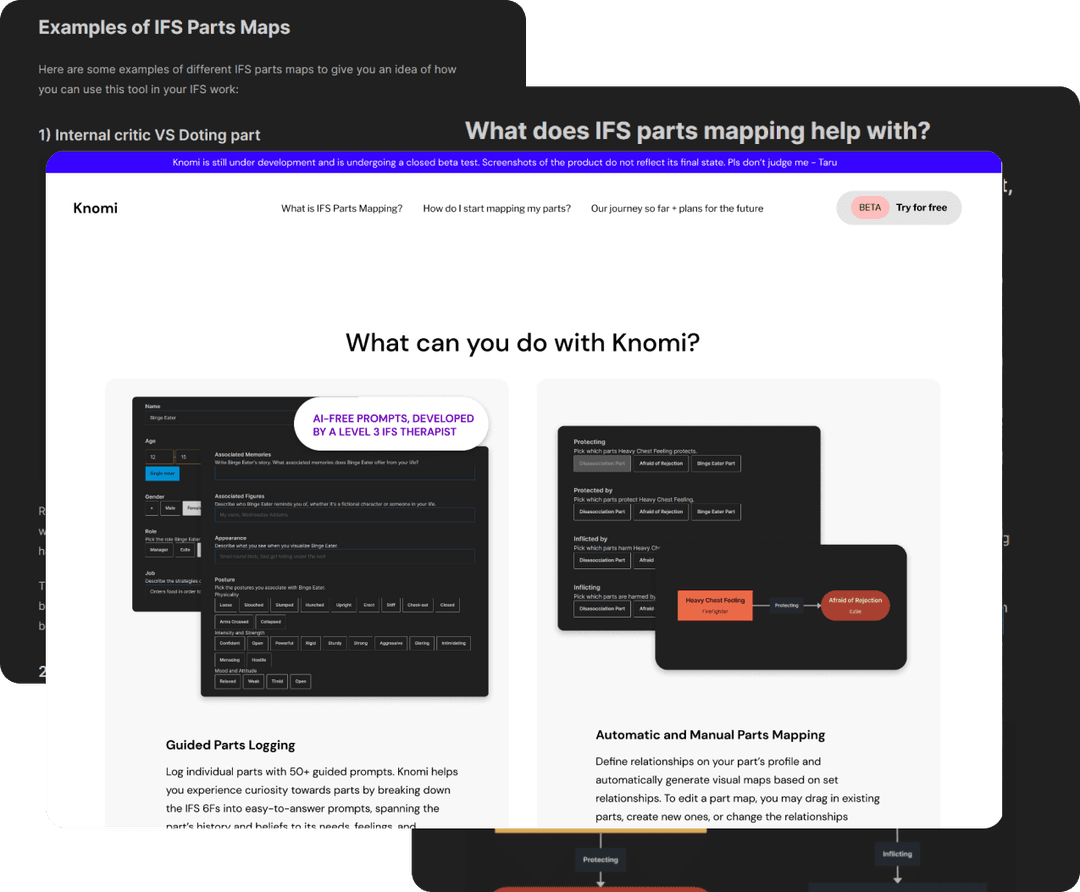
B2C | SAAS
Developed an MVP for a mental health app based on market research within the niche’s Reddit & Facebook communities. Identified MVP priorities as the go-to expert on the end-user.
PRODUCT MARKETING
POSITIONING & MESSAGING
MARKET RESEARCH
CONTENT STRATEGY
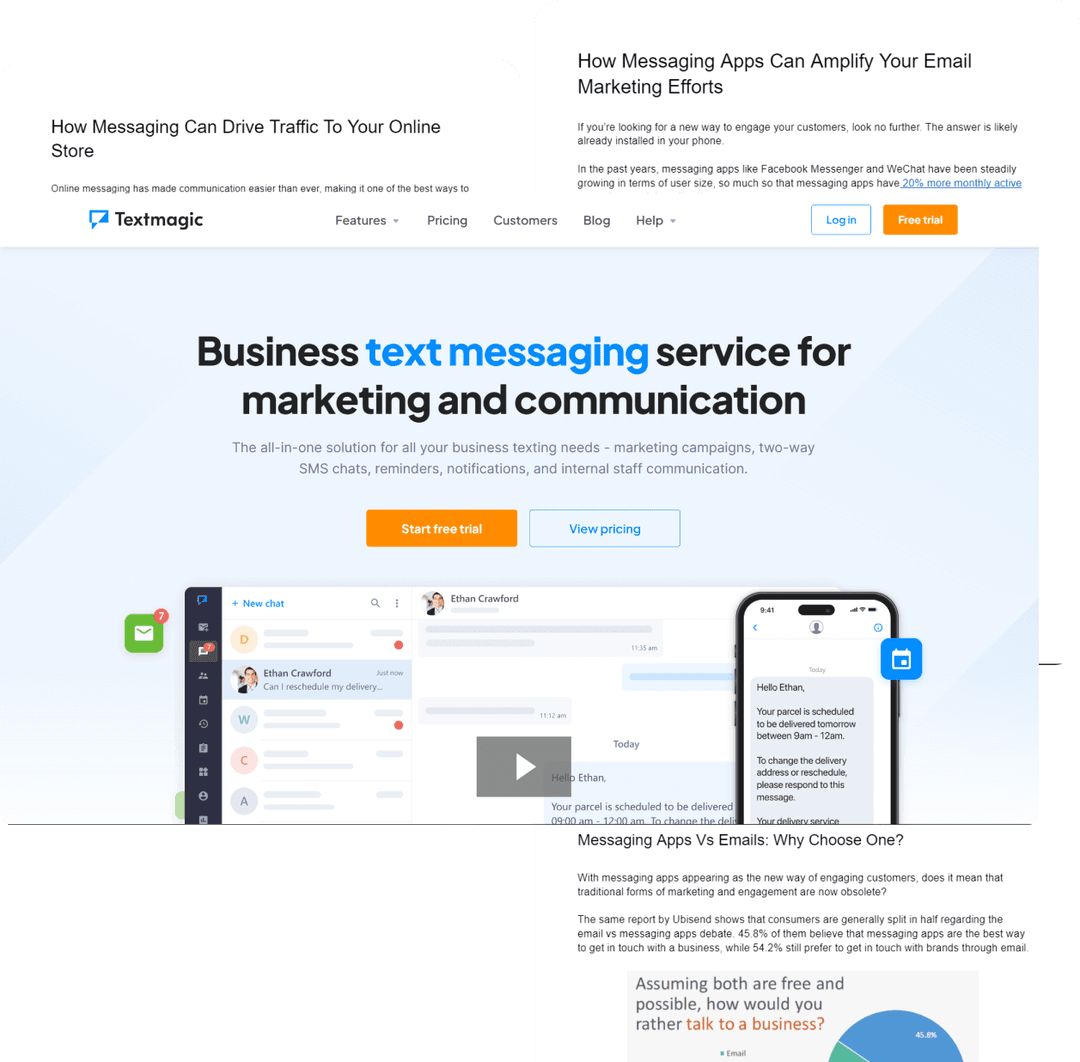
B2B | SAAS
Identified key messages and developed tactical, actionable thought leadership articles as part of TextMagic’s guest blogging campaign in building brand awareness and acquiring high-quality back links.
THOUGHT LEADERSHIP
MARKETING & E-COMMERCE
CONTENT DEVELOPMENT
GUEST POSTING & LINK-BUILDING
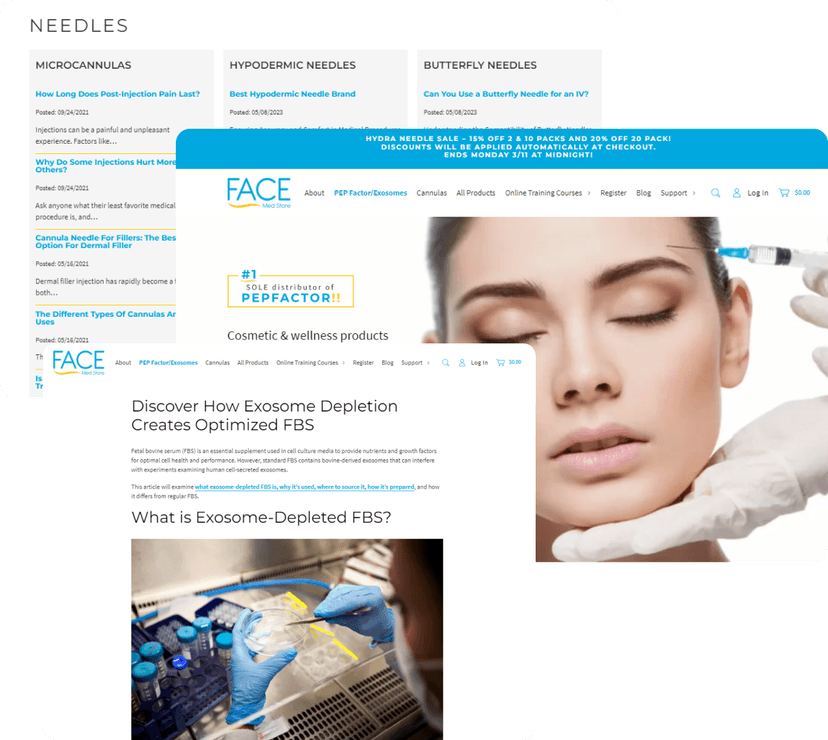
B2C | E-COMMERCE
Contributed to the Face Med Store’s growth to $60-100k MRR by consistently winning SERPs for competitive topics and building the brand as an authoritative voice in the dermatology and aesthetic medicine industry.
SEO CONTENT
AUTHORITY-BUILDING CONTENT
TECHNICAL WRITING
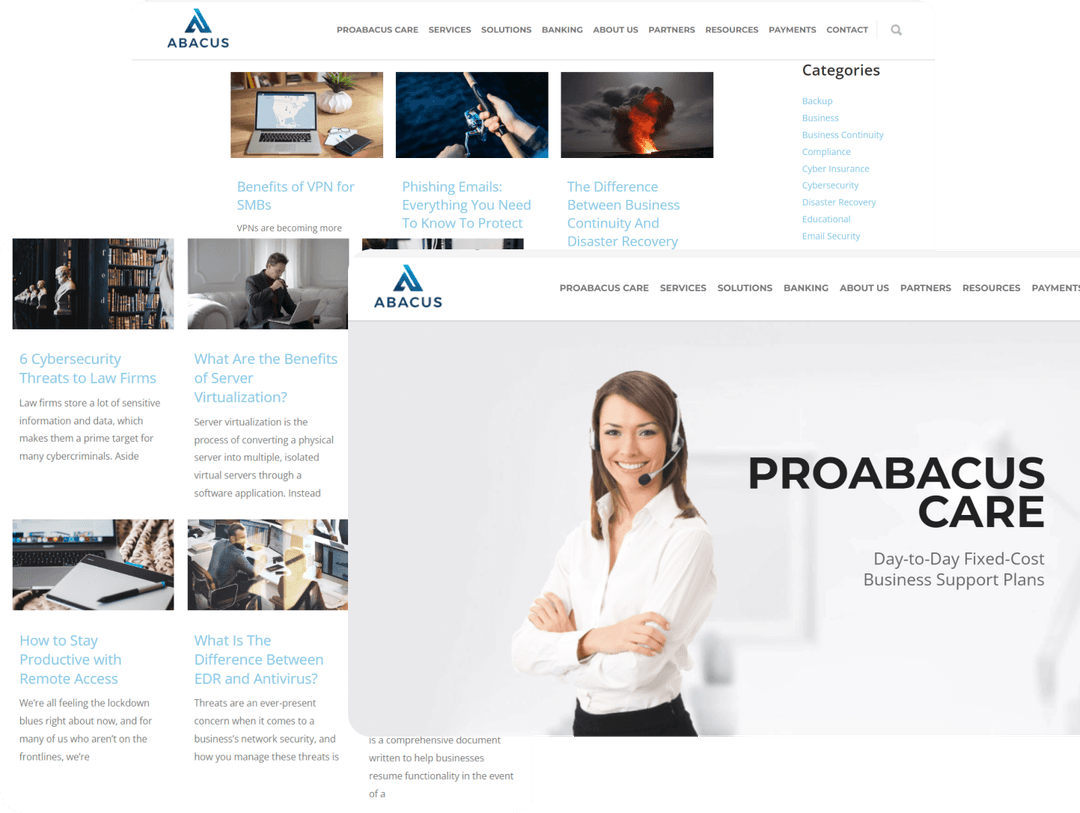
B2B | IT/MSP
Created sales-enablement marketing materials and knowledge base articles for Abacus IT to reduce redundancy for Support and improve onboarding efficiency for Sales.
CONTENT STRATEGY
SALES-ENABLEMENT CONTENT
KNOWLEDGE BASE ARTICLES
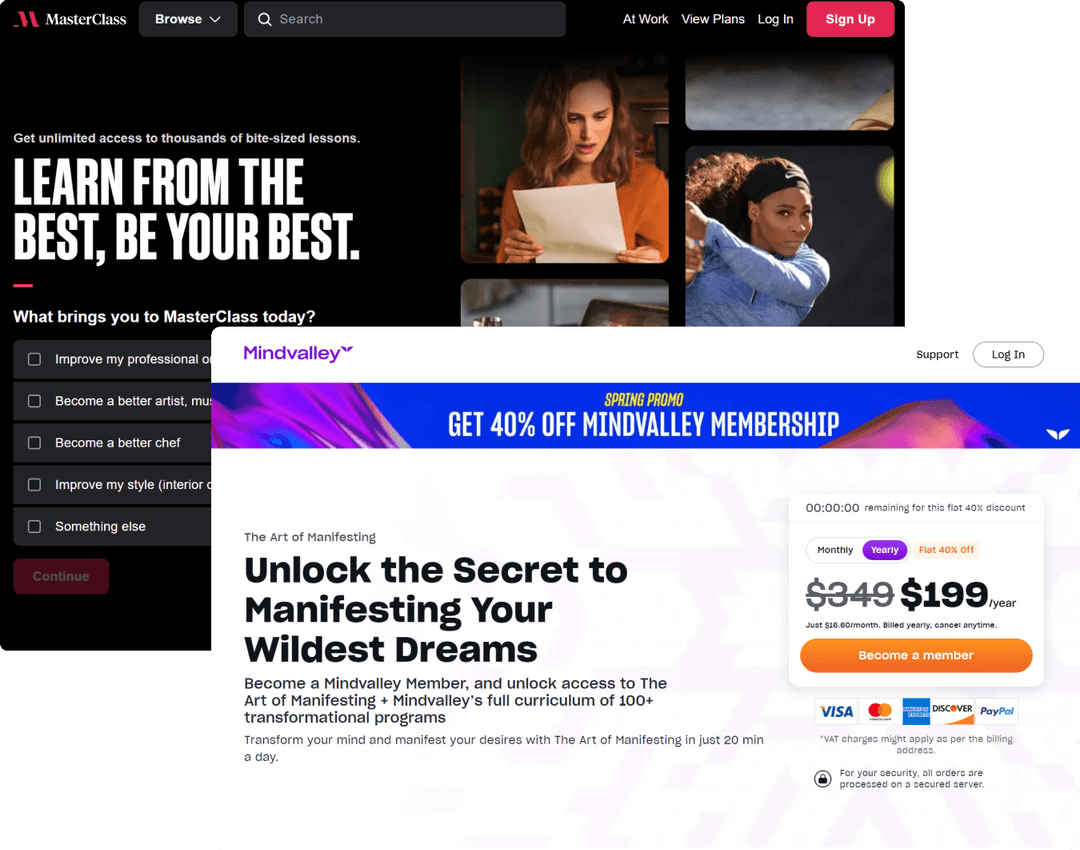
B2C | E-LEARNING
Developed a variety of in-depth course reviews for Masterclass and Mindvalley, integrating hyperspecific problem statements to foster trust in the readers and encourage platform subscriptions.
COURSE REVIEW
AFFILIATE MARKETING
READER PERSONA
COMMUNITY-BUILDING CONTENT
It’s not SEO VS brand building. SEO’d articles aren’t inherently bland. SEO is just a distribution channel. Good content = functional blog UX, specific information from a subject matter expert, understanding reader content.
Build everything around your users. You are never in a position where you “don’t have data”. Existing communities on Facebook, Reddit, and Twitter can be pretty telling of what users want — if you just listen.
How a content is distributed should be specific to the user base’s preferences. Developers are likelier to appreciate written self-help docs while non-techy business owners would typically prefer a video tutorial.
When doing keyword research, search volume alone isn’t the end-all-and-be-all of market demand. To get the full picture, join conversations that are happening within those communities through Slack groups, Twitter circles, and Facebook groups.
FAQ
Do you use AI in your content production? What are your thoughts on AI?
About 99% of the projects I mentioned here were completed before GPT hit mainstream. Majority of the articles here have been created by myself or writers who I vetted, hired, and trained during my time at Writrly.
The only project so far that I’ve worked on that included AI-generated content would be Unblend. Working with AI is basically like working with an already-trained writer in that it has a pretty good understanding of what you want, given that your prompts are specific enough.
AI does the “boring” parts of content creation. In a standard piece of content, for instance, not all of the information is new or revolutionary. I use AI to create a foundation of common understanding between myself and the user: writing the introduction, establishing definitions, setting the context.
It frees up resources so that I can focus on what actually makes content valuable: talking to human subject matter experts and introducing nuanced, actionable, and unique perspectives into the content.
Why would I hire you over someone who has actual experience working in startups?
My experience of content and design has always been in the greater context of revenue and building authority and trust.
In my experience as a founder, I’ve had to ideate, execute, measure, and iterate on tight resources. We didn’t have funding; Writrly was completely bootstrapped and Consecrea was set up because of Writrly’s revenue.
Understanding where and when to scale was really important in keeping both businesses afloat.
I have always been involved in every touchpoint in the customer’s journey - vetting them as leads, creating automatic email sequences to “warm them up”, getting on calls to understand what they were looking for, creating sample articles to convert them.
Why are you looking for startup experience as opposed to starting another one?
As the founder, the “final say” pretty much depended on me. I felt that I had an unending amount of blindspots because I didn’t have project owners dedicated to product, development, or customer service. That meant not really having access to actionable, experienced feedback that could improve what I was doing.
Instead, I’ve had to learn those things from scratch and test things. And that’s not to say that I don’t value independent learning, but having access to an experienced team can really push a project from good to great.
I wanna fill in the gaps in my understanding and experience cross-functional collaboration in the same setting, but with actual experts, not me in another hat.
You don’t have experience in our industry - how can I be confident in hiring you?
When people ask me which industry I specialize in, I say that I specialize in good writing.
Cheesy, right? But it does reflect my experience as a full-stack content marketer:
To me specialization is all about making sure you embody what the end-user wants: knowing their language, speaking their jargon, understanding the stories they tell themselves and each other.
And that is transferable in any industry.